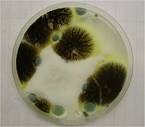Mold and its effects on your health.
By grandbbq
@grandbbq (153)
United States
November 15, 2006 6:05pm CST
In this discussion we would like to cover the subject of MOLD and it's affects on our health.
We would also like to cover what testing and sanitization can do to reduce these effects.
Professionals are welcome, and encouraged to add helpful content to this discussion.
1 person likes this
7 responses
@toonatoons (3737)
• Philippines
16 Nov 06
Things You Should Know About Mold:
Potential health effects and symptoms associated with mold exposures include allergic reactions, asthma, and other respiratory complaints.
There is no practical way to eliminate all mold and mold spores in the indoor environment; the way to control indoor mold growth is to control moisture.
If mold is a problem in your home or school, you must clean up the mold and eliminate sources of moisture.
Fix the source of the water problem or leak to prevent mold growth.
Reduce indoor humidity (to 30-60% ) to decrease mold growth by: venting bathrooms, dryers, and other moisture-generating sources to the outside; using air conditioners and de-humidifiers; increasing ventilation; and using exhaust fans whenever cooking, dishwashing, and cleaning.
Clean and dry any damp or wet building materials and furnishings within 24-48 hours to prevent mold growth.
Clean mold off hard surfaces with water and detergent, and dry completely. Absorbent materials such as ceiling tiles, that are moldy, may need to be replaced.
Prevent condensation: Reduce the potential for condensation on cold surfaces (i.e., windows, piping, exterior walls, roof, or floors) by adding insulation.
In areas where there is a perpetual moisture problem, do not install carpeting (i.e., by drinking fountains, by classroom sinks, or on concrete floors with leaks or frequent condensation).
Molds can be found almost anywhere; they can grow on virtually any substance, providing moisture is present. There are molds that can grow on wood, paper, carpet, and foods.
source:http://www.epa.gov/iaq/molds/moldresources.html
hope this resolves your post.
2 people like this
@toonatoons (3737)
• Philippines
16 Nov 06
i'm glad you posted this as it enabled me to research and learn a few things about molds. thanks.
@rebelann (113575)
• El Paso, Texas
26 Dec 19
It's a lose lose situation here. Living in the desert means it's usually very dry so in winter I need a humidifier so my sinuses don't dry out. I doubt it's at 30% but it could be around 20% in here. At least there isn't any static shocking me now that I have a humidifier and my sinus infection is disappearing.
@grandbbq (153)
• United States
18 Nov 06
Wrong. Mold turns clear and closes up when bleach is present. you need something like hydro peroxide mixed in with it. This acts as a camo for the bleach. when the mold sees the peroxide it see it as food. opens up and then the bleach can get into it and hopefuly kill it. there are much better products out there than bleach that will do a good job. Soda blasting for instance. Microbloc mold remover and a few others. Mold is smart.
@zeeterman (1066)
• United States
20 Nov 06
What about Tea Tree Oil?
That's oil from Meleluca trees.
We'd mix bleach with tea tree oil in a sprayer bottle to use on wall surfaces with mold. This seemed to work really well.
@The_Eagle_1 (1121)
• Australia
16 Nov 06
To retard mold, spray the effected area with vinegar after washing area with bleach and vinegar mixed in water

@mandakat (879)
• Canada
18 Nov 06
What does kill mould then?
We generally clean with bleach or a general bathroom cleaner, and scrub it off the walls, etc in our basement (bathroom). I'm severely allergic, and I have to live here for another 6 months or so. We're having trouble keeping it down.
Soon, I'm getting my own house with my boyfriend, and we're going to install Central Air, quality bathroom ventilation systems, and a dehumidifier that allows us to do the whole house. I can't wait lol!














